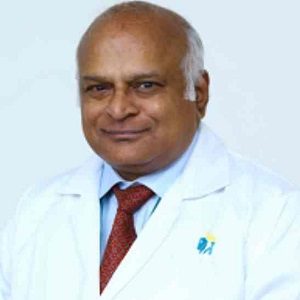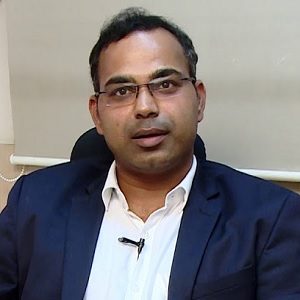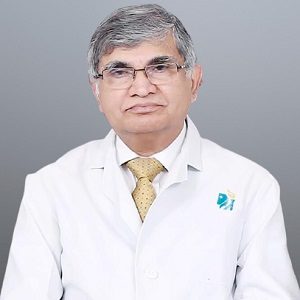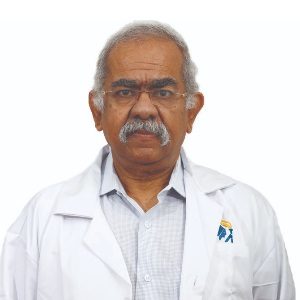Best Doctors in India for Alcoholic Hepatitis Treatment
- Surgical Oncologist, Head & Neck Surgical Oncologist; Chennai, India
- Over 18 years’ experience
- Apollo Cancer Centre, Apollo Hospitals Greams Road
Profile Highlights:
- Dr. Kannan S is a prominent Otorhinolaryngologist in India with nearly 18 years of experience.
- He holds a position as a Consultant Head and Neck Oncosurgeon in Apollo Cancer Institutes, Chennai.
- Being an MS and MBBS in Surgical Oncology, his interests led him to treat many ENT problems.
- He published several papers related to the same. He regularly attends conferences in his field and has also been awarded for his work.
- Urologist, Chennai, India
- Over 39 years’ experience
- Apollo Hospitals Greams Road
Profile Highlights:
- Dr. Murali Venkatraman is a Senior Urologist from India with vast experience.
- Being a fellowship holder in Laparoscopic Urology, he specializes in Laparoscopic Urology.
- Dr. Venkataraman is serving for the last 39 years and has received many awards and recognitions for his contribution.
- Spine Surgeon and Orthopaedic Surgeon, Chennai, India
- Over 18 years’ experience
- Apollo Hospitals Greams Road
Profile Highlights:
- Dr. Muralidharan Venkatesan is a consultant in spine surgery from Chennai.
- He provides comprehensive cervical (neck), thoracic (upper back), and lumbosacral (lower back) conditions treatment.
- Dr. Venkatesan pursued MBBS, MRCS, and a fellowship FRCS and shifted his specialization to spinal surgery.
- Dr. Venkatesan has his papers published in several journals.
- Surgical Gastroenterologist, Chennai, India
- Over 48 years’ experience
- Apollo Hospitals Greams Road
Profile Highlights:
- Dr. Prasanna Kumar Reddy is a veteran gastroenterologist in Chennai.
- Along with MBBS and DNB in surgery, he has a Diploma in Laparoscopy from Strasbourg.
- Over the years, Dr. Prasanna Kumar Reddy has gained enough recognition and appraisals for his treatment methods and has become one of the most preferred doctors.
- Orthopedic Surgeon and Spine Surgeon, Chennai, India
- Over 23 years’ experience
- Apollo Hospitals Greams Road
Profile Highlights:
- Dr. Ravi Venkatesan is a spine surgery specialist from Chennai, Tamil Nadu.
- His experience in spine surgery, orthopedics, and spine deformity surgery date back nearly 23 years.
- Dr. Venkatesan has performed several surgeries and has been an active member of various orthopedics groups.
- Many organizations have recognized his service and have awarded him for his dedication.
- Surgical Gastroenterologist, Chennai, India
- Over 27 years’ experience
- Apollo Hospitals Greams Road
Profile Highlights:
- Dr. Surendran R is an experienced gastroenterologist from Chennai, Tamil Nadu.
- He has been rewarded for his contributions to the field several times. He received The Best Doctor award from the Tamil Nadu government (2002) in his name.
- Being a gastroenterologist, he specializes in treating patients with problems such as Bowel Obstruction, Pancreatic diseases, Esophagus disorders, Fistula treatment, etc.
- Urologist, Chennai, India
- Over 37 years’ experience
- Apollo Hospitals Greams Road
Profile Highlights:
- Dr. Thirumalai Ganesan Govindasamy is a well-known Urologist of India.
- He has interests and specializations in Laparoscopic and Robotic Urology, Robotic and Laparoscopic Donor Nephrectomy, Urethral Reconstructive Surgery, Per-cutaneous Nephrolithotomy, and Flexible Ureteroscopy.
- Serving his patients for almost 37 years, Dr. Govindasamy has gained enough recognition and trust from his patients and has cured many people of severe illnesses.
- Gastroenterologist and GI Medicine Specialist, Chennai, India
- Over 23 years’ experience
- Apollo Hospitals Greams Road
Profile Highlights:
- Dr. Revathy Shanmugam is an experienced Gastroenterologist in Tamil Nadu, having an experience of 23 years in the management of GI disorders, Training & Teaching.
- She is highly skilled in the services like Liver Disease Treatment and Inflammatory Bowel Disease (IBD) Treatment.
- She has published various scholarly works in many National & International Publications of Medical Gastroenterology.
- Gastroenterologist and GI Medicine Specialist, Chennai, India
- Over 32 years’ experience
- Apollo Hospitals Greams Road
Profile Highlights:
- Dr. Hariharan Muthuswamy is a veteran Gastroenterologist and Hepatologist in India with over 32 years of experience.
- He is currently a Senior Consultant in Gastroenterology at Apollo Hospital, Chennai.
- Dr. Muthuswamy is proficient in treating patients with Non-Surgical Piles, Liver Disease, Hepatitis E, Hepatitis A and Hepatitis B, Hemorrhoids, Acid Reflux (Heartburn), Amoebiasis, Chronic Pancreatitis, Peptic Ulcers (Sores in the Stomach Lining), etc.
- Gastroenterologist and GI Medicine Specialist, Chennai, India
- Over 32 years’ experience
- Apollo Hospitals Greams Road
Profile Highlights:
- Dr. Mohan A T is a veteran GI medicine specialist in India with an experience of 32 years.
- Dr. Mohan, an alumnus of Madras University, is the Co-Ordinator of the Indian Society of Enteral and Parenteral Nutrition.
- He is an expert in treating Gastritis, acidity, Ulcerative Colitis, and many other Intestinal and bowel-related Treatments. In addition to these, he offers Colonoscopy, Gastroscopy, and Endoscopy.
Best Hospitals in India for Alcoholic Hepatitis Treatment
ALCOHOLIC HEPATITIS
Alcoholic hepatitis is a liver infection, which is mainly caused by frequent, heavy use of alcohol. Fat can build up in the liver cells, which might lead to inflammation as well as scarring of the liver.
Alcoholic hepatitis might be mild or severe. A patient might even need a liver transplant if proper treatment is not provided, or if they don’t stop consumption of alcohol.
It is also notable that all heavy drinkers don’t develop this condition, and sometimes this condition even develops in people who drink moderately. However, if you are diagnosed with this condition, it is important for you to quit drinking alcohol. People who continue drinking alcohol might face a huge risk of serious liver damage as well as death.
Symptoms
Depending on the amount of damage to the liver, the symptoms can vary. If you are having a mild form of the disease, you might not even experience any symptoms at all. However, as the damage continues to grow, you might experience the following:
- Changes in appetite
- Dry mouth
- Weight loss
- Pain or swelling in the abdomen
- Jaundice, or yellowing of the skin or eyes
- Fever
- Nausea and vomiting
- Easy bleeding or bruising
- Changes in your mental state, including confusion
- Fatigue
The symptoms of this condition are similar to those caused by a few other health conditions. Therefore, if you develop any of these symptoms, it is best to get a proper diagnosis as well as begin treatment.
Causes & risk factors
Alcoholic hepatitis generally develops when the alcohol you drink causes damage to your liver. However, it is not clear why alcohol does this damages only to some heavy drinkers.
Few factors that are known to play a role in this condition include:
- The body’s process that breaks down alcohol produces some toxic chemicals
- These chemicals can trigger inflammation that can destroy the liver cells
- Thus, over time, scars replace healthy liver tissue, thus interfering with the function of the liver
- This irreversible scarring, which is also termed cirrhosis, is the final stage of alcoholic liver disease
If you have hepatitis C and continue to drink, even moderately, you are more likely to develop cirrhosis.
Some heavy drinkers are also malnourished because they don’t eat a proper balanced diet. Alcohol and its byproducts also prevent the body from absorbing nutrition properly. Lack of nutrition can contribute to liver cell damage.
Some other risk factors that can lead to this condition include:
- Your sex- Women are usually at a higher risk of developing alcoholic hepatitis since the way alcohol is processed in women is different.
- Binge drinking- Having over five drinks within two hours for men and four or more for women can increase the risk of alcoholic hepatitis.
- Obesity- Heavy drinkers who are overweight are also more likely to develop alcoholic hepatitis and to progress from that condition to cirrhosis.
- Race and ethnicity- Hispanic and Negroid people might be at higher risk of alcoholic hepatitis.
- Genetic factors- According to studies, there may be a genetic component in alcohol-induced liver disease. However, it is difficult to separate genetic and environmental factors.
Diagnosis
If you are showing symptoms of alcoholic hepatitis, your doctor will first inquire about your medical history and alcohol consumption. Next, he/she will perform a physical exam to see if you have an enlarged liver or spleen. They might also need a few more tests to confirm your diagnosis, such as:
- Complete blood count (CBC)
- Liver function test
- Ultrasound of the liver
- Abdominal CT scan
- Blood clotting tests
In some cases, a liver biopsy might also be needed to confirm the diagnosis of alcoholic hepatitis. A liver biopsy requires your doctor to remove a tissue sample from your liver, which is then tested in the lab. This method helps to show the severity and type of liver disease.
Treatment
Stopping alcohol consumption is the most important treatment for alcoholic hepatitis. There is no cure for this condition, but treatment can help in reducing or eliminating symptoms, or stopping its progression.
It is also important to note that scarring of the liver is permanent, but treatment can aim to restore as much function as possible.
Dietary changes
Medication
Liver transplant
The best hope of recovery is to be aware of the signs and symptoms as well as to reduce, manage, or if possible, completely stop consumption of alcohol.
Complications
Alcoholic hepatitis might lead to severe other complications such as:
- Enlarged veins (varices)- In this condition, blood that is unable to flow freely through the portal vein, can back up into other blood vessels in your esophagus or stomach.
- Hepatic encephalopathy- This condition can be caused by the buildup of toxins if your damaged liver is unable to remove all the toxins from your body. It involves confusion, drowsiness, and slurred speech.
- Ascites- Ascites is a condition in which the fluid that accumulates in the abdomen may get infected and thus, require treatment with antibiotics. Although this condition is not life-threatening, it can be a sign of advanced alcoholic hepatitis, or cirrhosis.
- Kidney failure- A damaged liver affects blood flow to the kidneys, thus resulting in kidney failure.
- Cirrhosis- The scarring of the liver might lead to liver failure.
Prevention
Alcoholic hepatitis might be prevented if you take the following steps:
- Drink alcohol in moderation, if at all- For healthy adults, moderate drinking means no more than one drink a day for women of all ages and men older than 65, and not over two drinks a day for men aged 65 and younger. However, if you prevent all alcohol, it is a certain way to prevent this condition.
- Check before mixing medications and alcohol- Ask your doctor if it’s safe to drink alcohol while you are taking medications. Consider reading the warning labels on over-the-counter medications as well. Don’t drink alcohol when you are taking medications that warn of complications when combined with alcohol.
- Protect yourself from hepatitis C- Hepatitis C is an infectious liver disease that is caused by a virus. If it is left untreated, it may lead to cirrhosis. If you are having hepatitis C and you consume alcohol, you’re generally more likely to develop cirrhosis than if you don’t drink.















